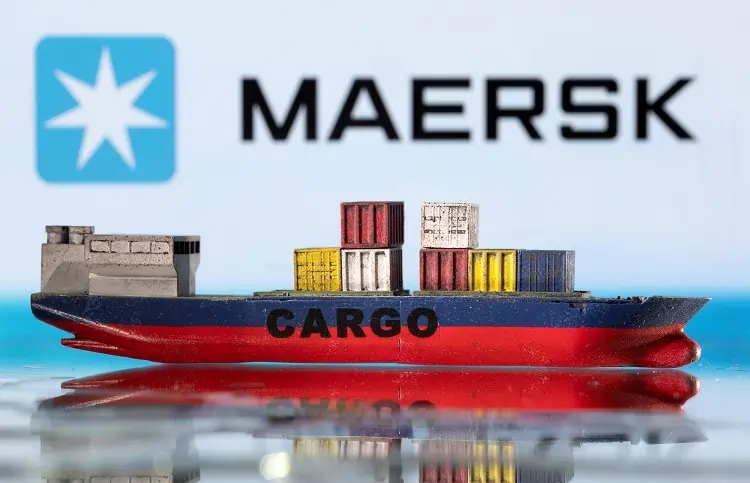
STOCKHOLM (Reuters) – The negative impact on maritime shipping and global supply chains from attacks in the Red Sea continues to intensify as traffic is rerouted away from the Suez Canal, Danish shipping company A.P. Moller-Maersk said on Thursday.
Attacks in the Red Sea by Iran-aligned Houthi militants have disrupted a route vital to east-west trade, with prolonged rerouting of shipments, pushing freight rates higher and causing congestion in Asian and European ports.
Maersk said recent data showed that the number of ships crossing through the canal has fallen 66% since carriers began diverting their vessels around Africa. Maersk did not elaborate on the data.
“These disruptions have led to service reconfigurations and volume shifts, straining infrastructure and resulting in port congestion, delays, and shortages in capacity and equipment,” it added.
Maersk in July said disruption to its container shipping via the Red Sea had extended beyond trade routes between the Far East and Europe to its entire global network, and warned of a “cascading impact” causing congestion.
“The timeline for easing these disruptions and returning to ‘normal’ remains uncertain,” it said on Thursday.
It added that demand for container shipping remains robust.
(Reporting by Anna Ringstrom and Stine Jacobsen, editing by Terje Solsvik; Editing by Sharon Singleton)


